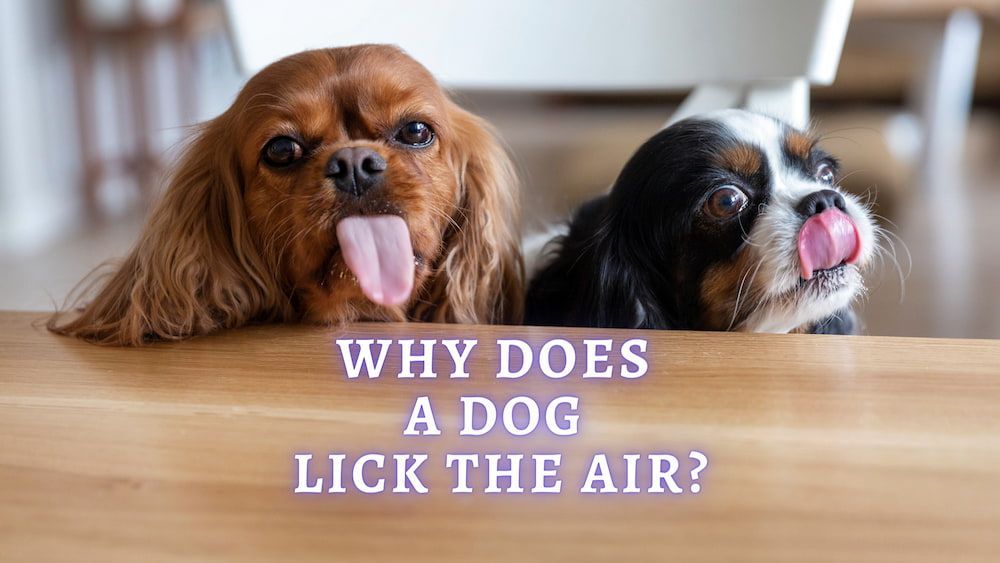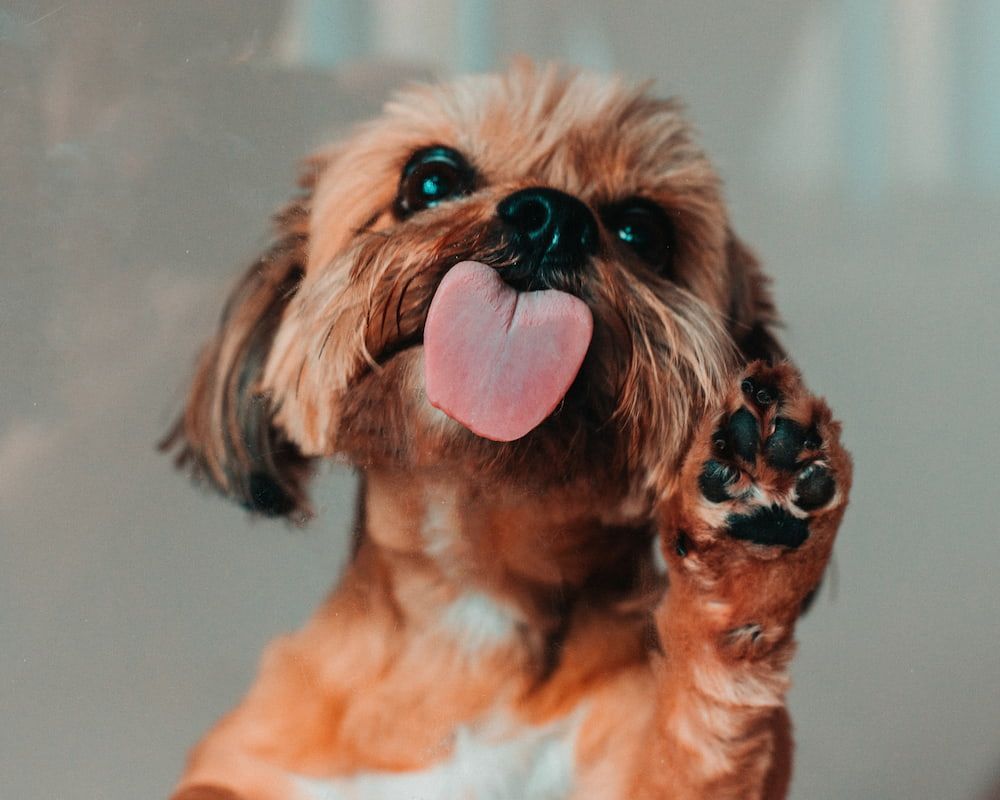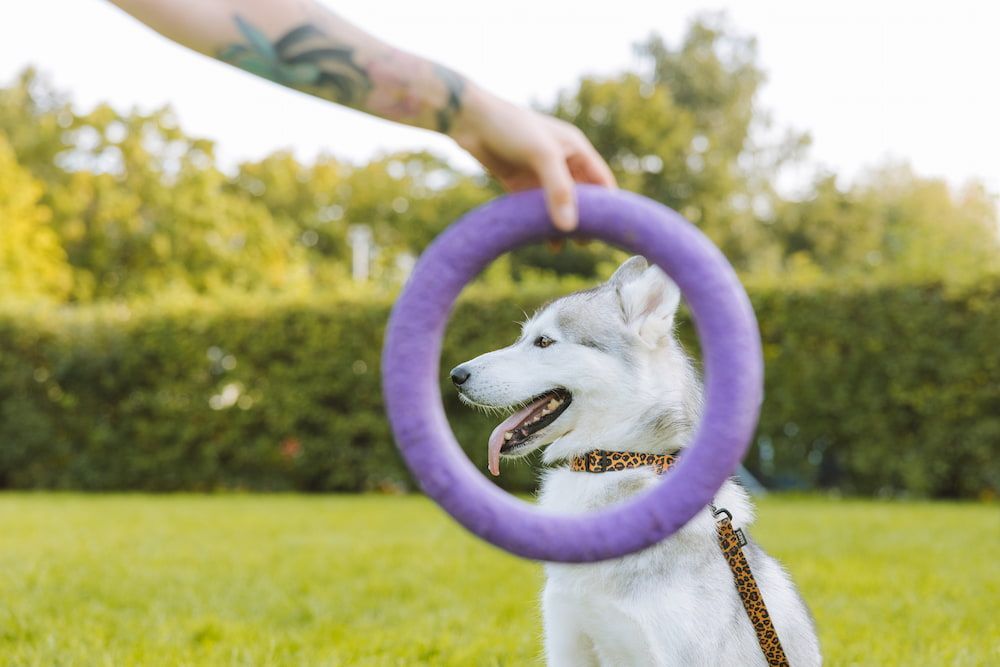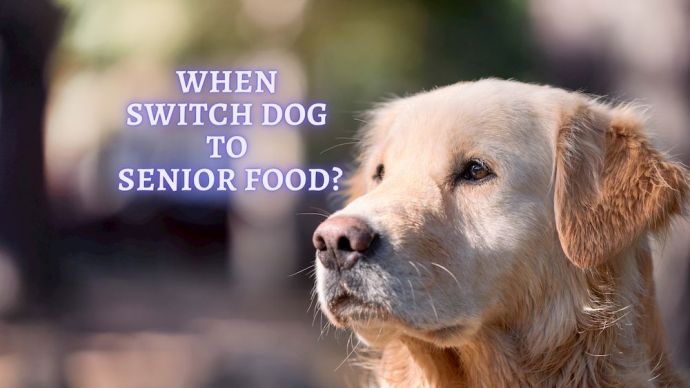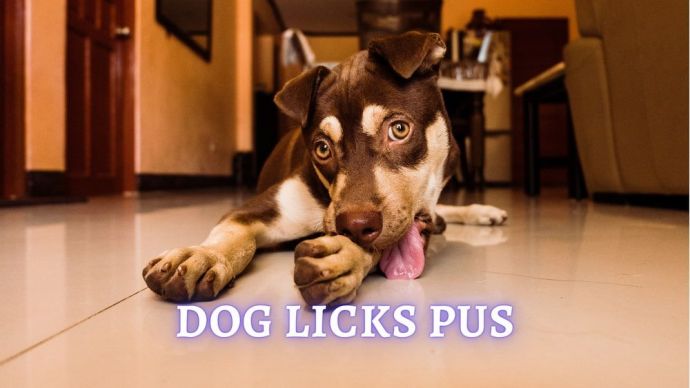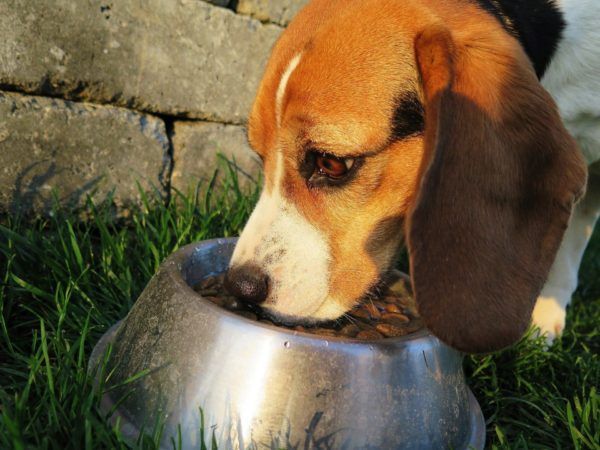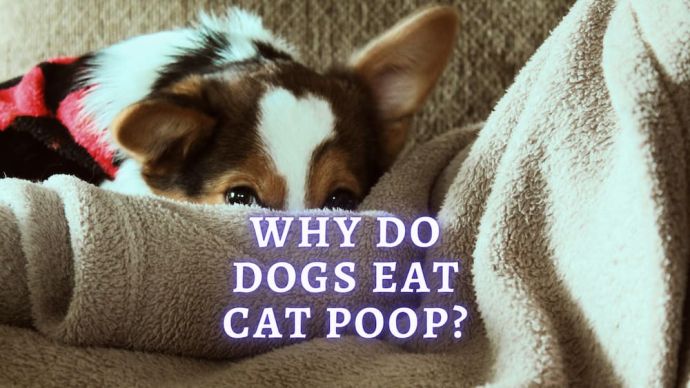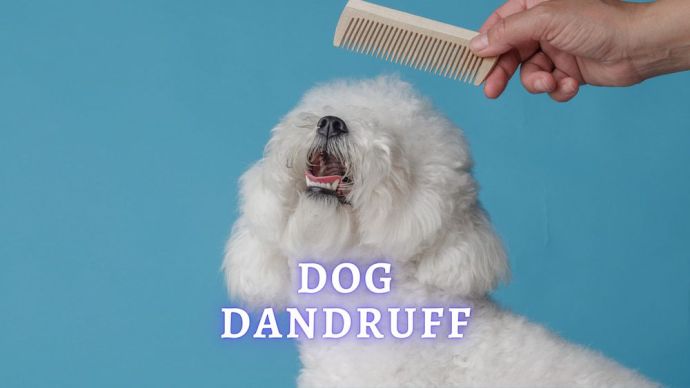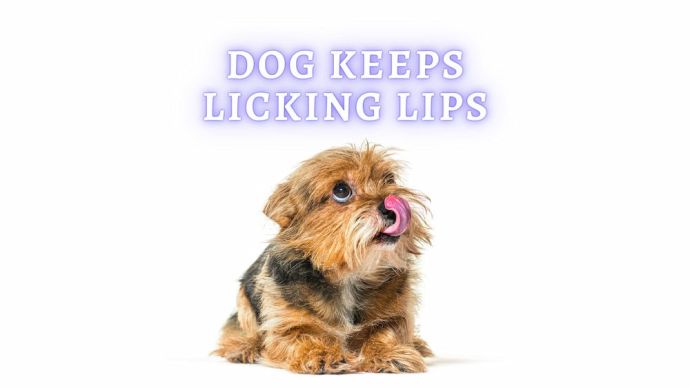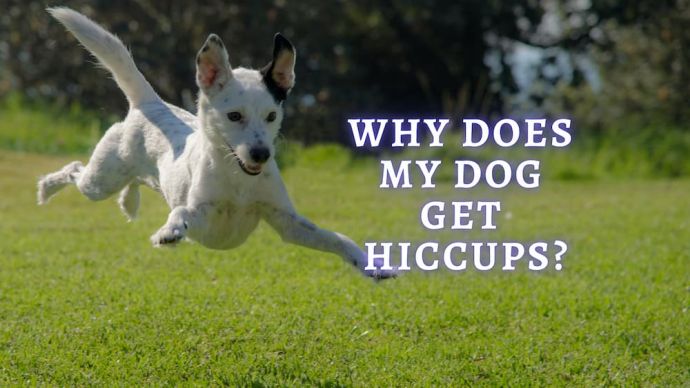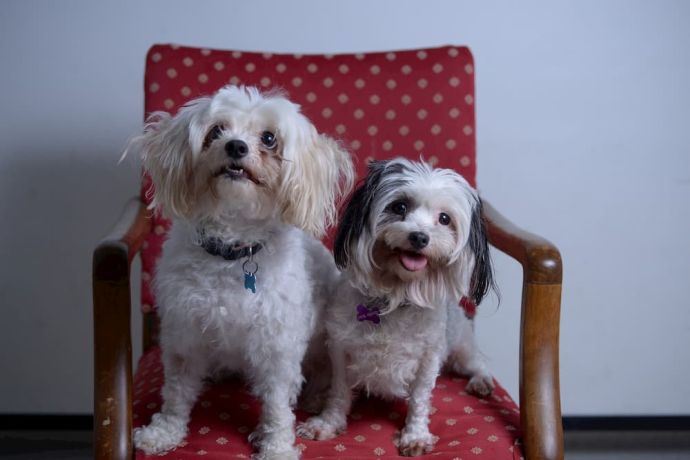Why Does My Dog Lick The Air? Health and Behavior Reasons for Dog Licking Air and How to Stop It
Written by:
Author: Marissa Prizio
Marissa Prizio attended the University of New Hampshire and earned a bachelor's degree in biomedical Animal Science. Marissa has always enjoyed writing; she was even mixing literature classes into her science major in college. During her writing career, she has edited eBooks, written for a variety of websites, and created audio-visual courses for sustainability.
View all 36 articlesLearn about our editorial process and veterinary review board.
Viewed: 143
Updated on: 04/14/2022
Dogs lick just about everything. Since they don’t have hands, their mouths are key when interacting with the world, but what does it mean when you see a dog licking air? Most owners have seen their pet lick the air at least once when spending time with their precious pooch and you would be right to wonder what this behavior means.
This behavior is linked to several health concerns and dog behaviors. Understanding why your pet acts the way they act could help you detect a health condition or better interpret your pet’s needs. Here are the most common reasons why your dog is licking the air.
Health Concerns
Dental Damage
Pets don’t brush their teeth daily as most humans do, and as a result, they tend to suffer from dental disease. Dental problems can appear at various stages once a dog is beyond its puppy years, and these problems tend to include gum disease and cavities that lead to tooth infections.
Puppies are unlikely to have dental degradation since they are so young, but they can have loose teeth that cause discomfort. Chewing is a common behavior for teething discomfort, but some puppies may also be like that when they experience a loose tooth.
A foreign object can get stuck in your pet’s mouth, causing dental pain and discomfort. Dogs will often begin licking the air in an attempt to dislodge a piece of food or other items stuck in their mouth. [1]
Other signs of oral issues that could cause this behavior include bad breath, loss of appetite, abnormal oral discharge, and signs of pain around the mouth. An oral exam performed by a veterinarian is the best way to determine if dental damage is causing these behaviors in your pet. [1]
Skin Irritation
Air licking can also be a response to many skin issues. Itchy skin or a foreign object on the skin is not always reachable with paws, so some pups lick as if they are itching the affected area even when they can’t reach it. [1]
Scratching an irritated or sensitive area can cause your dog to lick. This behavior is similar to the scratch reflex when a dog’s leg makes a scratching motion as you pet their favorite spot. [2]
READ MORE: My Dog Keeps Scratching His Mouth
Cuts & Scrapes
Injuries can illicit licking the air for similar reasons to skin irritation. This is especially true if your dog can not reach their injury. Look for other signs, like redness, swelling, or discomfort in any particular area. [3] If you resolve an injury that is bothering your dog, they won’t have any reason to continue attempting to lick it.
Nausea & Intestinal Discomfort
Lip licking is closely associated with nausea, and it may look like your dog is licking the air. This behavior is often caused by gastrointestinal problems, including irritable bowel syndrome or the consumption of an indigestible item. Anything that causes your dog to have an upset stomach can result in licking. [1]
If your dog displays excessive licking focused on their lips and otherwise looks uncomfortable, they may be dealing with stomach upset that needs to be addressed by a veterinarian.
Neurological Degradation
Senior dogs can develop canine cognitive dysfunction, which is a condition related to aging and the degradation of the brain. Canine cognitive dysfunction can result in a number of odd behaviors resulting from a failing brain in a senior dog, including air licking. [1] [4]
When an old dog licks the air for no particular reason and shows other signs of an aging mind, it is best if your vet determines if this behavior is related to cognitive dysfunction.
RELATED: Signs of Aging in Dogs (Vet Advice)
Behavioral Reasons
Flehmen Response
Dogs have a vomeronasal organ that helps them distinguish certain smells, especially those produced by another dog. You may notice teeth chattering, and air licking as dogs attempt to waft scents towards this sensory organ. [5] Licking the air near strong scents can help canines communicate because it gives them information about other dogs in the area.
Submission & Appeasement
Have you ever seen your dog licking air, offering a paw, and looking up at you with puppy dog eyes? Most dogs use these actions in an attempt to appease you, and this often happens when they are in trouble or want to show submission to a more dominant individual. This behavior is learned at a young age and is often used between puppies and their mother. [6]
Your dog’s eyes may not meet yours when they are liking the air in an act of appeasement, depending on how worried they are. [6] This is a natural form of canine body language that you may see between dogs as well.
Hunger
Dog food is smelly, and your pup can sense exactly when it is feeding time from one whiff. Your dog’s air licking during feeding time is likely a behavioral response to hunger. When dogs anticipate a meal, they tend to drool more and lick their own lips, which may appear as excessive for a short while. [1]
Pets may appear to be licking air when you are cooking human food, especially items with a strong or savory scent.
RELATED: Why Is My Dog Always Hungry?
Stress, Anxiety, Boredom, & Compulsive Behavior
Plenty of events can induce stress in dogs, including loud noises, a new pet, or environmental changes. When dogs face a form of stress they can not escape or face regular boredom, they tend to engage in self-soothing behaviors like licking. [1] [7]
Stress can mature into anxiety if a stressor doesn’t diminish over time, and those self-soothing behaviors can develop into repetitive behavior. It can be hard to stop once your pooch starts engaging in one of these behaviors regularly. Other repetitive behaviors include tail-chasing or constant barking. [7]
A compulsive disorder like compulsive licking can be identified when there is no other notable reason for constant licking. Some pets may do it so often that they lick other surfaces and even other animals. [8] Licking things isn’t always bad, but if your pet’s behavior reaches this point, it will be hard to ignore and start to interrupt certain aspects of daily life. [7]
How To Prevent Air Licking
This air licking behavior is not always a bad thing, and it is done by many dogs. It could be part of natural behaviors for your pet like submission, hunger, and the flehmen response. However, if your pup is licking the air constantly or frantically, it may be time for a vet visit.
Veterinary advice will help you rule out any medical concerns that could be causing your dog’s licking, like foreign objects in the mouth, skin issues, injuries, or stomach upset. [7] [8] If dogs lick the air despite a clean bill of health, then it is time to consult an animal behaviorist to rule out or treat compulsive behaviors. [1]
Licking air is not necessarily a concern on its own, but its causes can be. If a dog licks the air regularly, then it is time for you to start paying attention.
Article Sources:
- “14 Reasons Dogs Lick Everything.” ASPCA Pet Health Insurance, 16 Jan. 2017, aspcapetinsurance.com/resources/14-reasons-dogs-lick-everything/.
- “Dog Scratch Reflex: What Is It? | Hill’s Pet.” Hill’s Pet Nutrition, 10 Dec. 2021, hillspet.com/dog-care/behavior-appearance/dog-scratch-reflex-and-leg-kicking.
- “Wounds and Skin Injuries.” PDSA, pdsa.org.uk/pet-help-and-advice/pet-health-hub/symptoms/wounds-and-skin-injuries.
- Debra, et al. “Behavior Counseling Senior Pet Cognitive Dysfunction.” VCA Animal Hospitals, vcahospitals.com/know-your-pet/behavior-counseling-senior-pet-cognitive-dysfunction.
- “Behavior Medicine: Dog Body Language Basics.” University of Pennsylvania School of Veterinary Medicin, vet.upenn.edu/docs/default-source/ryan/ryan-behavior-medicine/dogbodylanguagebasics-(pdf).pdf.
- Joswich, Jamie, et al. “Canine Communication Interpreting Dog Language | VCA Animal Hospitals.” VCA, vcahospitals.com/know-your-pet/canine-communication—interpreting-dog-language.
- “Dog: Repetitive Behavior.” San Francisco SPCA, sfspca.org/sites/default/files/dog_behavior_repetitive-behavior.pdf.
- “Why Is My Dog Licking Me?” American Kennel Club, 21 Oct. 2019, akc.org/expert-advice/advice/why-is-my-dog-licking-me/.
 Dog Veterinary Tips Why is my Dog throwing up: Causes and Preventing (Veterinary Advice)
Dog Veterinary Tips Why is my Dog throwing up: Causes and Preventing (Veterinary Advice) - 23424
- 5
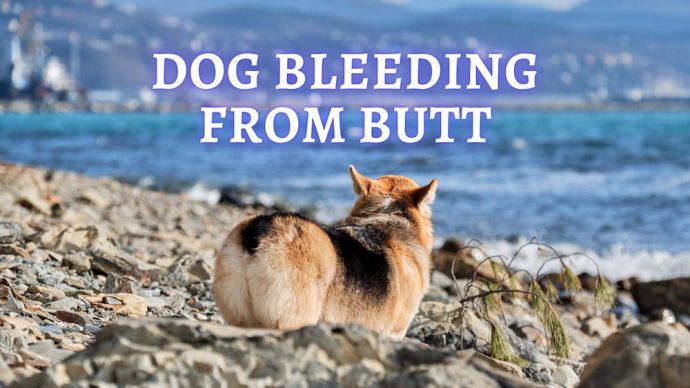 Dog Care Why Is My Dog Bleeding From Its Butt? Causes and treatment of rectal bleeding in the dog
Dog Care Why Is My Dog Bleeding From Its Butt? Causes and treatment of rectal bleeding in the dog - 22076
- 0
 Dog Care My Dog Keeps Scratching His Mouth: Reasons Why Your Dog Scratching Face
Dog Care My Dog Keeps Scratching His Mouth: Reasons Why Your Dog Scratching Face - 17561
- 1









